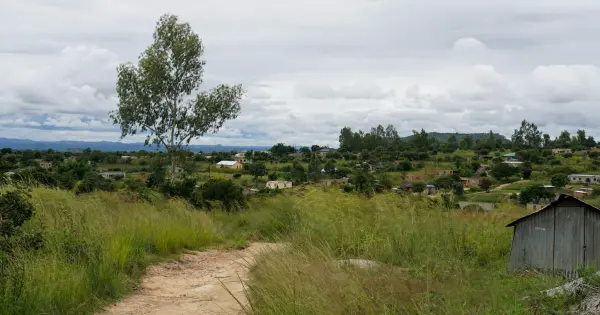Managing agricultural land in Zimbabwe requires more than just farming know-how—it demands strategic thinking and business acumen. The difference between a struggling operation and a thriving enterprise often comes down to solid management practices. In that regard, this guide is your new best friend.
In 2025, farm management in Zimbabwe faces unique challenges and opportunities. With shifting climate patterns, evolving market demands, and changing land policies, having a solid management strategy isn't just helpful – it's essential.
At Propertybook, Zimbabwe's leading real estate platform, our extensive database of farm properties and agricultural land gives us unique insights into what makes agricultural properties thrive. Our analysis of farm property listings across Zimbabwe's diverse farming regions has helped us develop practical strategies that work in our local context.
Let's dig into everything you need to know about successful farm property management.
Understanding Zimbabwe's Agricultural Property Market
Before jumping into management strategies, let's get our boots dirty with some eye-opening facts about Zimbabwe's agricultural property landscape.
Zimbabwe's farm property market offers diverse opportunities with significant regional variations. According to our official Propertybook metrics, the average farm property price is $415,000, with considerable differences across regions. Mashonaland East commands premium prices at around $45 per square meter, while properties around Harare average $15 per square meter.
For those looking at rental yields, farm properties typically generate 5-8% annually, with lease terms commonly ranging from 1-3 years. Small farms (3-20 hectares) typically rent for $400-$3,500 monthly, while larger operations (90-166 hectares) command $2,500-$8,000 monthly.
Understanding these regional differences is crucial when developing your management approach. A one-size-fits-all strategy simply won't cut it in Zimbabwe's diverse agricultural landscape.
The Seven Pillars of Successful Farm Property Management
Managing a farm property successfully requires balancing multiple considerations simultaneously. Here are the seven fundamental pillars that will keep your agricultural property productive and profitable:
1. Strategic Planning: Your Farm's Roadmap
Think of strategic planning as plotting your course before setting sail. Without it, you're just wandering in the field hoping for the best.
Successful farm property management starts with clearly defined goals and timelines. Are you aiming for commercial crop production, livestock farming, or perhaps a mixed approach? Your strategic plan should outline:
- Short-term goals (seasonal)
- Medium-term objectives (1-3 years)
- Long-term vision (5+ years)
- Crop rotation schedules
- Infrastructure development timeline
- Labor requirements and scaling plans
In Zimbabwe's sometimes unpredictable agricultural environment, your strategic plan should be firm enough to provide direction but flexible enough to adapt to changing conditions. The most successful farm managers review and adjust their strategic plans quarterly while keeping their long-term vision intact.
2. Financial Management: Counting More Than Seeds
Many a good farmer has been undermined by poor financial management. In Zimbabwe's unique economic environment, this pillar requires extra attention.
Set up separate accounts for operational costs, emergency funds, and investment capital. Track every expense meticulously, from seed purchases to equipment maintenance. Create a cash flow forecast that accounts for the seasonal nature of farming income.
Remember that in Zimbabwe's agricultural sector, unexpected expenses are the rule rather than the exception. Wise farm managers maintain an emergency fund covering at least three months of operational costs. This buffer can mean the difference between weathering a tough season and facing financial disaster.
For rental properties, maintain detailed records of all financial agreements with tenants, including payment schedules, maintenance responsibilities, and improvement allowances.
3. Resource Allocation: Making the Most of What You Have
Every farm property has limited resources – land, water, labor, and capital. Successful management hinges on optimizing these resources for maximum productivity.
Conduct a thorough resource inventory of your property, including:
- Land quality assessment (soil types, fertility levels, drainage)
- Water resources (boreholes, dams, irrigation systems)
- Infrastructure (buildings, fencing, roads, electricity)
- Equipment and machinery
- Human resources (skills, experience, availability)
With this inventory in hand, allocate resources based on your strategic priorities. In Zimbabwe's agricultural landscape, water management deserves special attention. Properties with reliable water sources command significantly higher values in the current market.
For rental farm properties, clearly document which resources are included in the lease agreement and establish protocols for resource management and sustainability.
4. Risk Management: Preparing for Zimbabwe's Unique Challenges
Farming is inherently risky anywhere, but Zimbabwe presents some unique challenges that demand robust risk management strategies.
Identify potential risks specific to your property's location and farming type. These might include:
- Climate variability (droughts, floods, changing rainfall patterns)
- Market fluctuations
- Policy and regulatory changes
- Pest and disease outbreaks
- Infrastructure failures
- Security concerns
For each identified risk, develop mitigation strategies. This might include diversifying crops, investing in irrigation systems, securing comprehensive insurance coverage, establishing market relationships with multiple buyers, or implementing robust security measures.
Our data shows that farm properties with diversified income streams typically maintain more stable valuations during challenging periods. Consider complementary activities like agritourism, value-added processing, or direct marketing to create multiple revenue sources.
5. Maintenance and Infrastructure Management: The Backbone of Farm Value
Well-maintained infrastructure significantly increases both the productivity and value of farm properties. Our property assessments consistently show that farms with well-maintained infrastructure command higher prices than comparable properties with neglected facilities.
Develop a comprehensive maintenance schedule for all infrastructure elements:
- Buildings (residential, storage, processing)
- Fencing and security features
- Roads and access paths
- Irrigation systems
- Machinery and equipment
- Water storage and distribution systems
For rental properties, clearly define maintenance responsibilities between landlord and tenant. The most successful arrangements typically have the landlord responsible for major infrastructure while tenants handle day-to-day operational maintenance.
Implement a regular inspection routine, ideally monthly for critical systems and quarterly for all infrastructure. Document all maintenance activities, repairs, and improvements – this documentation becomes invaluable during property valuation or tenant transitions.
6. Tenant Relations: The Human Element of Farm Property
If you're leasing out your farm property, managing tenant relationships becomes a critical aspect of property management.
Start with thorough tenant screening. For agricultural properties, this goes beyond financial considerations to include:
- Farming experience and expertise
- Alignment with your property's capabilities
- Long-term plans and vision
- References from previous landlords or agricultural partners
- Financial capacity and stability
Develop comprehensive lease agreements that address agricultural-specific concerns like:
- Land use restrictions and conservation requirements
- Water usage allocations
- Infrastructure utilization and maintenance
- Crop selection and rotation requirements
- Chemical usage policies
- Access rights for monitoring and inspection
Regular communication is essential. Establish quarterly check-ins to discuss property conditions, upcoming seasonal plans, and any concerns from either party. Document these discussions to maintain a clear record of agreements and commitments.
7. Legal and Regulatory Compliance: Navigating Zimbabwe's Agricultural Framework
Zimbabwe's agricultural sector operates within a complex legal and regulatory framework that requires careful navigation.
Stay current with regulations pertaining to:
- Land ownership and usage rights
- Water rights and environmental regulations
- Labor laws and worker safety requirements
- Export and marketing regulations
- Tax obligations specific to agricultural enterprises
- Chemical usage and storage requirements
Consult with legal professionals specializing in agricultural law when drafting lease agreements or making significant property decisions. The Zimbabwe Farm Management Association provides regular updates on regulatory changes affecting the sector and can be an excellent resource for compliance guidance.
Maintain organized documentation of all permits, licenses, and compliance certificates. Regular audits of your compliance status can prevent costly legal issues down the line.
Technology Integration in Farm Property Management
In 2025, technology has become an indispensable tool for effective farm property management in Zimbabwe. Despite connectivity challenges in some rural areas, strategic technology adoption can significantly enhance productivity and profitability.
Consider implementing these technology solutions:
- Farm management software for record-keeping and financial tracking
- Geographic Information Systems (GIS) for mapping and land use planning
- Remote monitoring systems for security and infrastructure oversight
- Mobile payment systems for rental collection and vendor payments
- Weather monitoring and forecasting tools
For landlords managing multiple farm properties, cloud-based property management platforms allow for centralized oversight of multiple tenants, maintenance schedules, and financial performance.
Technology adoption should be incremental and practical. Focus first on solutions that address your most significant management challenges rather than implementing technology for its own sake.
Tenant Selection for Agricultural Properties
For investors renting out farm properties, tenant selection is perhaps the most crucial decision affecting both short-term returns and long-term property value.
Look beyond financial qualifications to assess:
- Farming philosophy and approach
- Environmental stewardship practices
- Long-term vision alignment
- Technical expertise in relevant agricultural sectors
- Financial stability and access to operating capital
- References from agricultural suppliers and previous landlords
The most successful landlord-tenant relationships in agricultural properties are those where both parties share a similar vision for the land's potential and sustainability. Take time during the selection process to thoroughly discuss expectations, management approaches, and long-term objectives.
Consider starting with shorter lease terms (1-2 years) for new tenant relationships, with options for extension based on performance and compatibility. This provides an exit strategy if the arrangement proves unsuitable while offering stability for successful partnerships.
Ready to Harvest Success?
Effective farm property management in Zimbabwe requires balancing traditional agricultural wisdom with modern business practices. Whether you're managing your own farm or overseeing rental properties, the seven pillars we've outlined provide a framework for sustainable success.
Remember that in Zimbabwe's agricultural sector, adaptability remains the most valuable trait. Market conditions, weather patterns, and regulatory environments will change, but a well-managed farm property with sound fundamentals will continue to thrive through these shifts.
At Propertybook, we're committed to supporting Zimbabwe's agricultural sector through our comprehensive property listings, market insights, and educational resources. Whether you're looking to acquire, sell, or optimize your farm property, our team is ready to assist.
Looking for the perfect farm property to put these management principles into practice? Browse our current agricultural listings at www.propertybook.co.zw – from small hobby farms to large commercial operations, we have options to suit every agricultural vision.
Data sources: Propertybook property database (2025), Zimbabwe Farm Management Association market reports; Photo By: Kaboompics.com on Pexels




